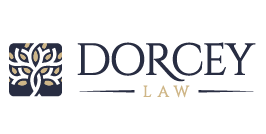Equine sales and purchase agreements are essential when buying or selling horses in Florida. These legally binding contracts outline the terms and conditions of the transaction, protecting both parties from potential disputes and misunderstandings. In this comprehensive guide, we will discuss the importance of equine sales and purchase agreements, key elements to include in the contract, and how to ensure your investment is protected.
Why Are Equine Sales and Purchase Agreements Important?
Equine sales and purchase agreements are crucial for several reasons:
- Protecting both parties: A well-drafted agreement clearly outlines the terms and conditions of the sale, protecting both the buyer and the seller from potential disputes and misunderstandings.
- Establishing ownership: The agreement serves as proof of the transfer of ownership, which may be required for registration purposes or to obtain insurance coverage.
- Compliance with Florida law: Florida has specific laws governing equine sales, including Florida Statute Chapter 673, which requires a written contract for sales of goods valued at $500 or more. Additionally, Florida's Equine Industry Regulations provide guidelines on various aspects of horse ownership and transactions.
Key Elements to Include in an Equine Sales and Purchase Agreement
A comprehensive equine sales and purchase agreement should include the following elements:
- Identification of the horse: The agreement should clearly describe the horse, including its name, breed, age, sex, registration number (if applicable), and any distinguishing markings.
- Purchase price and payment terms: The contract should specify the purchase price, any deposit required, and the terms of payment (e.g., cash, check, or financing).
- Warranties and representations: The seller should provide warranties and representations regarding the horse's health, soundness, and suitability for its intended purpose. This may include a statement that the horse is free from any known defects or illnesses.
- Pre-purchase examination: The agreement should outline the buyer's right to have the horse examined by a veterinarian of their choice before completing the purchase.
- Risk of loss and insurance: The contract should specify when the risk of loss transfers from the seller to the buyer and whether insurance coverage is required.
- Delivery and transportation: The agreement should detail the arrangements for delivering the horse to the buyer, including any transportation costs and responsibilities.
- Dispute resolution: The contract should include a clause outlining how disputes will be resolved, such as through mediation, arbitration, or litigation.
How to Ensure Your Investment Is Protected
To protect your equine investment, it is essential to work with an experienced attorney who specializes in equine law. An attorney can help draft a comprehensive sales and purchase agreement, ensuring that all necessary elements are included and that the contract complies with Florida law. Additionally, an attorney can provide guidance on other aspects of horse ownership, such as estate planning, tax implications, and liability issues.
At Dorcey Law Firm, we have a team of knowledgeable attorneys who are well-versed in equine law and can help you navigate the complexities of equine sales and purchase agreements in Florida. Our goal is to protect your investment and ensure a smooth transaction, so you can focus on enjoying your new equine partner. Contact us today to learn more about our equine law services and how we can assist you with your equine sales and purchase agreement needs.


